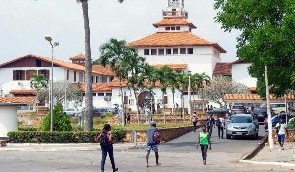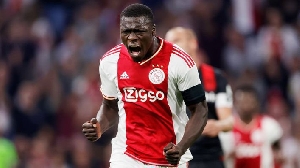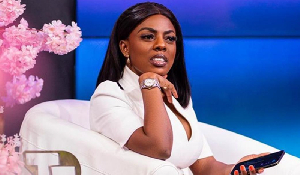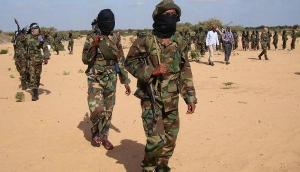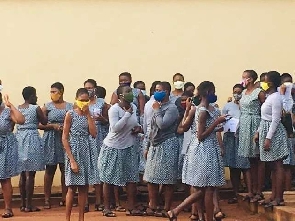In the preceding pieces intellectualism was defined loosely as being the derivation of knowledge from reason alone. By this definition intellectualism was regarded as the philosophy which asserts that truth can best be discovered by reason and factual analysis. Unfortunately some fail to distinguish between intellectualism and elitism. Elitism in sociological terms refers to a relatively small dominant group within a larger society which enjoys a privileged status upheld by individuals of lower social status within the structure of a group. Elitism can emerge in academia, linguistics, religion, class, finance and military. The Marxist political scientist, Michael Parenti developed the “elite theory” in which he stipulates that all sufficiently large social groups will have some form of elite group within that actively participates in the group’s political dynamics. Elitism breeds envy and resentment from the lower classes and the counter-elite. It is therefore not surprising when some who wrongly equates elitism with intellectualism show intense resentment. Interestingly, it is not uncommon for some elites to use the resentment of an elite group to maintain their position. Further, anti-intellectuals have sought to frame themselves as the champions of the “ordinary people”. For the avoidance of doubt and to re-establish the premises for this write, an intellectual is a person who uses his or her intellect to study, reflect, speculate on, or ask and answer questions with regard to a variety of different ideas. Intellectualism therefore involves integrating numerous mental abilities such as the capacities to reason, plan, solve problems, think abstractly, comprehend ideas and language, and learn. Socrates is the first historical figure credited with intellectualism for his enunciation of the principle that “knowledge is sufficient for excellence”. He advocated that one will do what is right or best just as soon as one truly understands what is right or best. It should therefore not be surprising when some anti-intellectuals deliberately or ignorantly liken intellectualism to elitism.
In the previous write-ups an analysis was commenced on the dangers to democracy in Ghana. A consideration was given to the effect of repressive governance on the growth of democracy and the intellectual basis underpinning the system of governance adopted by past leaders in the political history of the country starting from Dr. Kwame Nkrumah to the AFRC era led by Flt. Lt. Jerry Rawlings. This piece would continue from the period starting from the Third Republican Constitutional era of President Hilla Limann to the present day government led by President John Kufuor. A consideration would also be given to intellectual basis underlying the ideological posturing of the major political parties.
The Third Republican Constitution
Democratic rights of Ghanaians were restored when Flt. Lt. Rawlings led the AFRC to supervise the return to constitutional democracy and handed over to Dr. Hilla Limann. President Hilla Limann led People’s National Party government was considered moderate socialist and pan-Africanist. Dr. Limann believed in the socialist principle of the socio-economic system in which property and the distribution of wealth are subject to social control. He respected individual rights, free speech and association. He allowed the June 4 Movement to thrive and flourish notwithstanding the obvious threat it posed to his government, rule of law and constitutional rule. He further granted amnesty to some political detainees imprisoned under the AFRC. As a pan-Africanist, he held the view that unifying and uplifting of Africans on the continent and those in the Diaspora was an integral part of a ‘global African community’. Notwithstanding his socialist beliefs, his government enjoyed the support of business for the pro-business policies he pursued. He respected the independence of the judiciary and the protection of individual rights guaranteed under the constitution. The Ombudsman was allowed to play its constitutional function without governmental interference. His government however failed to halt the economic decline, corruption that seemed to be flourishing and the widening gap between the rich and the poor. It came as not much of a surprise when the popular Flt. Lt. Rawlings seized political power again with the help of some military men on 31st December, 1982.The Second Coming of J.J. Rawlings
Flt. Lt. Rawlings continues to remain a colossus on the political landscape of Ghana almost seven years after handing over power. BBC’s Mark Doyle describes him as ‘one of Africa’s most colourful and controversial leaders’. His second coming on 31st December, 1982 on the wings of the Provisional National Defense Council (PNDC) was not marked by a bloody coup as that of 1979. By his own admission he does not have any political ideology; neither does he profess to have any economic agenda. He stated in an interview that: “Don’t ask me what my ideology or economic programme is. I don’t know any law and I don’t understand economics, but I know it when my stomach is empty”. However his close association with Capt. Kojo Tsikata, Dr. Kwesi Botchwey and Kwamina Ahwoi demonstrated his tendencies towards Marxism/socialism. Further, for most part of his leadership of the PNDC he felt comfortable in the company of socialists such as President Fidel Castro of Cuba and the Libyan leader Col. Gaddafi.His justification for overthrowing the constitutionally elected government of Dr Limann was economic hardship and corruption. The PNDC era marked a total absence of democratic rights. The government was accused of alleged human rights abuses. Mr. J.A. Kufuor who accepted an invitation to join the PNDC and served as Secretary for Local Government resigned within seven months. His reasons were the brutality, intolerance and abuse of human rights that characterized the PNDC government. The National Reconciliation Council also recorded many cases of abuses. The period marked a dark period in the history of Ghana. One of the most gruesome was the murder of the three judges and a retired military officer in which some people close to the government were implicated. The murder of Osofo Asare in broad daylight remains a major blight on the period. Curfew inflicted on the nation did not only impose limitation on personal freedom but also destroyed a lot of economic activities. A number of people were tried for plotting coups and executed. Later publications by former chairmen of the Public Tribunal George Agyekum and Kwaku Boakye-Dankwah emphasise the extent of governmental interference in judicial decisions. There existed no official opposition and dissenting views were not tolerated. The breaking of the ‘culture of silence’ (a phrase attributed to Flt. Lt. Rawlings) by Prof. Albert Adu Boahen marked a period of preparation culminating in the return to constitutional democracy. The process commenced with the nationwide collation of views by the National Commission for Democracy (NCD) chaired by Justice D.F. Annan. That period of the country can be summed in the words of two people who were close to Flt. Lt. Rawlings at various stages of his leadership of the country. To Mrs. Valerie Sackey: “Rawlings has been good to Ghana. This country would have been in ruins without him”. But to Kweku Baako Jnr: “The PNDC days were a period of sheer terror and repression”.
The Fourth Republican Constitution and President Rawlings
The promulgation of the Fourth Republican Constitution with Flt. Lt. Rawlings as the president marked a sharp difference in his governance of the country. President Rawlings led National Democratic Congress (NDC) largely respected the constitution and the rule of law. Critics however refer to incidences of abuse of office and laws at variance with the spirit of the constitution. The period marked a great improvement in democracy and individual freedoms. In addition to modest economic successes his era of presidency marked a considerable improvement in press freedom. Again his critics refer to use of the Criminal Libel Law in attempt to silence dissent at the time. His government’s failure to apprehend the killers of the ‘Kumepreko’ marchers is also held up against him. His government is credited with the breaking of state monopoly on television and radio broadcast and also repealing the newspaper licensing law. These were marked deviation from his earlier outlook which made his critics to label him as a tyrant with his loyalists proclaiming him as a benevolent dictator. He concluded his leadership by the supervising the election which the opposition leader Mr. John A. Kufuor won. The transition marked the first ever civil transfer of power from one elected leader to another in the history of the country. Dr. Yao Graham who once worked closely with Flt. Lt. Rawlings however says this of him: “He’s turned Ghana into a colony. He is like a comet we all looked up to for extra light only to be engulfed in darkness.”President Kufuor – A Positive Change?
The jury is still out on President John Agyekum Kufuor who proclaims to believe in the principles of property owning democracy. As a leading member of the All People's Party (APP), together with Alhaji Iddrisu Mahama, (Deputy Leader), and Dr. Obed Asamoah (General Secretary), he accepted an invitation to serve from the PNDC as Secretary for Local Government. He resigned after seven months and is credited with writing the Local Government Policy Guidelines that were to be the foundation of the current decentralized District Assemblies.Undoubtedly, his presidency has witnessed Ghanaians enjoying the best human rights in the history of the country. The government claims to have no political prisoners in the country. One of the major claims of his critics is his government’s failure to bring to book the perpetrators of the murder of the Ya Na Yakubu Andani, the King of Dagbon, and about forty others. However President Kufuor has lived up strongly to his democratic credentials by accepting the principles of Rule of Law and the respect for the right of the individual. His era has witnessed the ‘demystification of the presidency’ as claimed by his handlers. He introduced the ‘people’s assembly’ where he engages in question and answer sessions with ordinary people. He has opened up the presidency to the local and foreign media alike. BBC’s Mark Doyle concedes Mr. Kufuor may not be a demagogue or hothead but remains boring. The President defends himself thus: “If boredom gives us peace and stability for people to go about their normal businesses and live in dignity, then I would say let’s have more boredom.” One of his electoral promises was fulfilled when the Criminal Libel Law was repealed. His era has seen Ghana being praised within the international community as a beacon of hope and model of democracy and freedom in Africa. The last presidential and parliamentary elections he supervised were not without its criticisms. There were reported incidents of intimidation and irregularities. However the domestic and international observers judged the elections generally free and fair. The South African President Thabo Mbeki in congratulating President Kufuor described Ghana as “one of the most stable multi-party democracies in the West African region.” After a period of time in Ghana, Mark Doyle concludes that: “Ghana is rather special, and unusually well-administered country by any standards, and particularly by the standards of West Africa”.
POLITICAL PARTIES AND IDEOLOGIES
An ideology is systematised compilation of ideas. Political ideologies are made up of ideals, doctrines, principles, ethics, myths and symbols of a political grouping that explain how a society should work. Political ideologies usually offer blueprints for social order and concern how power is allocated and to what ends it should be used. Ideologies often define political parties and their policies. All the political parties in Ghana subscribe to one political ideology or the other. For the purpose of this exercise the political ideologies of the three main political groupings would be considered. The Convention People’s Party (CPP) and the People’s National Convention (PNC) are all from the Nkrumaist stable and subscribe to Socialism as their political ideology. The ruling NPP claims to believe in property owning democracy however it has been labelled as a liberal party. The NDC proclaims to be a social democratic party.
The Nkrumaist Traditions
The CPP was formed as a mass movement during the struggle for independence by Dr. Nkrumah. The party embraced farmers, fishermen, the rural folks, the rich and the poor alike. The CPP was set out to be a party within which there were no distinctions. The founders believed all citizens were to be considered as Ghanaians first. The party was committed to freedom and dignity of the African everywhere and committed to the process of independence ‘now’. A cardinal principle of the party was the commitment to social justice and the conviction that "you cannot have a nation that is half marginalised and half affluent". It also believed that it was the responsibility of the state to ensure that all citizens are given equal opportunity to develop themselves before any tribal considerations.The underlying political ideology of Dr. Nkrumah and the CPP was socialism. This refers to a broad array of doctrines and political systems that envisage a socio-economic system in which property and the distribution of wealth are subject to social control. Socialism is associated with the economic system where the state or the society as a whole shares the ownership of means of production. By this means the state (or society) fulfills the role of taking care of the citizens. Socialists allow for the control to be indirect through collectives such as workers’ councils or directly exercised by the state on behalf of the people. To Karl Marx, who helped in the establishment and definition of the modern socialist movement, socialism entails the abolition of markets, capital and labour as a commodity. The socialist movement started as a forum for European socials critics who condemned capitalism and private property. There is now a diverse array of doctrines and movements that refer to themselves as socialists. There is no single common socialist doctrine or programme, particularly in terms of economic organisation. The communist school which tends to be extreme champions the complete nationalisation of the means of production, or decentralised ownership in the form of cooperatives or workers councils. On the other end are the moderate socialists who preach market socialism in which social control of property exists within the framework of market economics and private property ownership.
The CPP and other Nkrumaists of today are still committed to these ideals. The Nkrumah/CPP version of socialism has continuously grown moderate. The Dr. Hilla Limann led People’s National Party (PNP) – an ideological heir of the CPP – was committed to market economy which was more liberal in outlook than socialist. The fall of the Soviet Union and the recent change of heart of the Chinese towards market economy seem to be making the communist form of socialism rare. However, there are many in the Nkrumahist family who still hold the belief that those ideals are still relevant today.
The Danquah/Busia Tradition
The NPP traces its roots not just to Dr. Joseph Boakye Danquah and Dr. Kofi Abrefa Busia but further to Ephraim Casely-Hayford, the founder of the pro-independence National Congress of British West Africa. Dr. Danquah was a founding member of the United Gold Coast Convention (UGCC), a pro-independence grass-root movement which was transformed into a political party under Dr. Nkrumah. Dr. Busia started his political career as a district commissioner from 1942 – 1949. He was the leader of Ghana Congress Party which later merged with other opposition parties to form the United Party (UP). Dr. Busia became the first of that tradition to become a national leader of the country from 1969 – 1972 as the Prime Minister. President Kufuor of the NPP is a direct heir of the Danquah/Busia tradition. He also served as the Deputy Foreign Affairs Minister in the UP government in the Second Republic. The NPP is liberal party and its members profess to hold unto the principles of property owning democracy. The party’s belief in liberalism is amply demonstrated by its political tradition of holding liberty as the primary political value. The party’s liberalism is characterised by its belief in freedom of thought for individuals, limitations on the power of the government, the rule of law, the free exchange of ideas and the respect of the rights of minorities. The economic philosophy underpinning the NPP is market economy which supports free enterprise. The party also subscribes to liberal democratic principles which favour open and fair elections, where all citizens have equal rights by law and an equal opportunity to succeed. Emergence of a New Force – NDC and Social DemocracyThe appearance of National Democratic Congress (NDC) brought a new political force onto the Ghanaian political scene. The Party traces its roots to the AFRC/PNDC with Flt. Lt. Jerry John Rawlings as its founder. The NDC is projected as a mass party which appeals to a broad section of the population. Its political lineage has given cause for its opponents to label the party as violent and undemocratic. However facts on the ground may not wholly support the perception considering the party’s successes in two major elections and its period of governance under the fourth republican constitution.
The ideological foundation of the NDC is social democracy. The ideology in modern terms advocates a gradual legislative reform of the capitalist system in order to make it more equitable and humane. It is traceable to supporters of Marxism who uphold a gradual evolutionary approach to change. When the ideology emerged it included revolutionary socialists. However in recent years it has evolved and become exclusively associated with the non-revolutionary approach. The NDC also demonstrates a centrist ideology in policy choice and execution. The PNDC the direct antecedent of the NDC started out on a seeming socialist agenda but changed along the line in favour of more centrist policies with moderate outlook. Whilst never shedding its total belief in socialist programmes, the party has systematically followed policies of market reform.
INTELECTUALISM IN POLTICAL ORGANISATION
The foregoing demonstrates that all the major political groupings subscribe to various political ideologies. However the intellectual depth backing these ideologies to help in the formulation and implementation of policies seems to be inadequate. There is no evidence on the ground to suggest they rely on scientific research and analysis to carry out their programmes. Some of the parties claim to have set-ups tasked with such activities yet they seem to be under-resourced in terms of staff, finance and equipment. The parties seem to attach little importance, if any, to research and scientific development of ideas and programmes. This seems to underlie the often mediocre debates which may be full of untruths and often personalised. It is not uncommon to glean a level of vindictiveness and envy when politicians engage in any debate on any issue. This is unhealthy for the political maturity of the country. It is important for political leaders to engage in debates on issues based on proven facts.
In the final installment a critical look would be taken at the Ghanaian media landscape and how they bring intellectualism to bear on the national political discourse. An attempt would also be made to answer some questions that have been posed in reaction to these write-ups.
God bless Ghana.
Kofi Nyame
Thornton Heath,
Surrey
email: kofinyame@gmail.com


